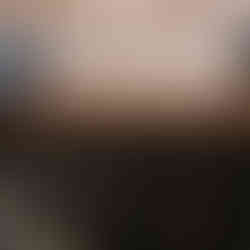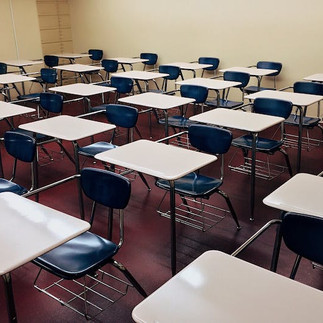في سنصم للتعليم ، يمكن للطلاب استكشاف مجموعة متنوعة من الجامعات في مختلف البلدان، مع أفضل عروض الرسوم الدراسية والمنح
Education in turkey
Higher education in Russia is similar in structure to the central European system, with a few key differences. The system is divided into four main sections – primary, secondary, higher and postgraduate education.
Upon completion of secondary education, students can pursue either a Bachelor’s or Specialist’s degree, both qualifying students to later pursue a master’s degree. Bachelor’s degrees are given after four years of full-time study at a university. Specialist degrees are awarded after a minimum of five years of study and are more focused on practical education in a student’s chosen field. Both qualifications require students to successfully defend a thesis and pass examinations.
The higher education system in Russia is renowned for its achievements and emphasis in the field of science and technology. Many of the courses offered at state-funded institutions are focused around the sciences, but a large variety of humanities and social sciences programs are offered as well. In recent years, private higher education institutions have emerged to complement these traditional Russian institutions, offering programs in other fields such as economics, business and law.
For international students, there are official websites that allow them to apply for studies in Russia and check the status of admissions online. These websites also provide detailed instructions on how to enter a Russian university and a convenient service to help you search for education programmes, academic olympiads, summer and winter schools, and more.
Please note that this information is subject to change and it’s always a good idea to check with the official websites or other reliable sources for the most up-to-date information
Most Important Universities in Russia
Here are some of the top universities in Russia according to various rankings:
Lomonosov Moscow State University (MSU): Ranked first in Russia and 75th worldwide according to the Quacquarelli Symonds (QS) World University Rankings 20233.
Bauman Moscow State Technical University: Ranked 230th worldwide in the QS World University Rankings 20233.
St. Petersburg State University: It is one of the top universities in Russia.
Novosibirsk State University: Ranked 260th worldwide in the QS World University Rankings 20232.
Tomsk State University: Ranked 264th worldwide in the QS World University Rankings 20232.
Moscow Institute of Physics and Technology (MIPT): Ranked 267th worldwide in the QS World University Rankings 20232.
Higher School of Economics (HSE): It is one of the top universities in Russia.
National Research Nuclear University MEPhI (Moscow Engineering Physics Institute): Ranked 308th worldwide in the QS World University Rankings 20232.
Kazan Federal University: It is one of the top universities in Russia.
Please note that these rankings can change and it’s always a good idea to check with the official university websites or other reliable sources for the most up-to-date information.
It's good idea to Visit: QS Universities Rankings - Top Global Universities & Colleges | Top Universities and Times Higher Education home | Times Higher Education (THE)
Student Entry Vias to Russia
To apply for a student visa in Russia, you need to follow these steps:
Determine if you need a visa: Most non-Russian world citizens who wish to study in Russia will need to get a visa to do so. Only Belarus and South Ossetia nationals can remain in Russia for an unlimited time, without a visa.
Apply for the visa: You can apply for a Russian student visa at the Russian embassy, consulate, or a third-party visa application center, located in your country of residence. The earliest you can apply is 60 days before your intended departure to Russia, and the latest you are permitted to apply is one month prior to your trip.
Select the right student visa: Russia issues study visas based on invitations by the Ministry of Interior. These visas can be single entry, double entry, or multiple-entry. A Russia Student Visa is valid for 90 days. Later on, the Ministry of Interior can extend its validity for the duration of the study contract, up to a year.
Required documents to apply for a Russia Student Visa are as follows:
Completed Russian student visa application form.
Your valid passport.
Biometric photographs in compliance with the Russia visa photo requirements.
Proof of booked flight tickets.
Travel insurance for your entire stay in Russia.
Health insurance.
Letter of acceptance (Make sure the letter details the duration of your stay.)
Invitation letter from University
Bank statement as evidance of Financial Capabilities
For further information you can visit: Russian Visa Requirements - Required Documents For Russia Visa (visaguide.world)
Apply for a residence permit:
After arriving in Russia and completing your university registration, you need to complete two more procedures. Get the immigration card at the Russian port of entry. Register your Russia student visa. This is the responsibility of the hotel or the owner of the private home where you will be staying in Russia.
Please note that this information is subject to change and it’s always a good idea to check with the nearest Russian embassy or consulate for the most up-to-date informatio
Living & Cost in Russia
Living in Russia can be an interesting experience, with a rich history, diverse culture, and unique traditions. The cost of living in Russia can vary greatly depending on the city and lifestyle. Here is a general breakdown of costs:
In order to live comfortably while studying in Russia, the student should have about 150 – 300 US$ monthly for living costs, above the cost of tuition. The cost of living and studying in Russia is much cheaper than in any other European country, though living expenses in Moscow and Saint Petersburg are a little bit higher than in other Russian cities. It is difficult to name a definite sum because of the difference in students’ lifestyle, but you can see approximate costs below.
Stationary needed for a student costs very cheap. For example, a bundle of 1000 rough papers costs 2 US$. Pens, pencils and other writing materials are even cheaper.
Text books are provided by University Library.
Good Jeans cost 10-20$US, shirt costs 5-15$US, T-shirt costs 5-12US$.
Food in Russia is cheap. For example, for 1.5US$ a student can buy 4 Kg of Potato, or 4 Kg of ONION or 3 liters of milk etc. Dairy products are cheap as well.
Student Pass on different means of Public Transport (Underground, Busses) is issued by University and costs only 5US$ a month.
Students get 40% off the regular price on Train and Bus Tickets.
International Student Identity Card (ISIC) is issued right after the student gets Admission at University. Students with ISIC get 30% off the regular price on Air Tickets.
Wealthy Information you can find here: Cost of Living in Russia. Prices in Russia. Updated Dec 2023 (numbeo.com)
Tourism in Russia
Russia, or the Russian Federation, is a transcontinental country spanning Eastern Europe and Northern Asia. It is the largest country in the world, covering one-eighth of Earth’s inhabitable landmass. Russia extends across eleven time zones and shares land boundaries with fourteen countries. It is the world’s ninth-most populous country and Europe’s most populous country. The country’s capital and largest city is Moscow. Saint Petersburg is Russia’s cultural centre and second-largest city. Other major urban areas in the country include Novosibirsk, Yekaterinburg, Nizhny Novgorod, Chelyabinsk, Krasnoyarsk, and Kazan.
Here are some popular travel destinations in Russia:
Pushkin: Famous for summer, adventures. Some of the famous tourist attractions are Catherine's Palace.
Sevastopol: famous for its beaches3.
Moscow: The capital with a thousand options.
Saint Petersburg: the city you will fall in love with.
“Golden Ring”: the famous tourist route with a network of ancient cities north-east of Moscow.
Tourist routes in Russia include traveling around the Golden Belt of ancient cities, cruises on rivers including the Volga, and long journeys on the Trans-Siberian Railway. Russia's diverse ethnic regions and cultures offer different foods and souvenirs, and display a variety of traditions, including Russian Maslenitsa, Tatar Sabantuy, or Siberian shamanic rituals6. In 2013, 33 million tourists visited Russia, making it the ninth most visited country in the world and the seventh most visited in Europe.
Also here more inofrmation about Tourism in Russia visit: Tourism in Russia - Wikipedia












